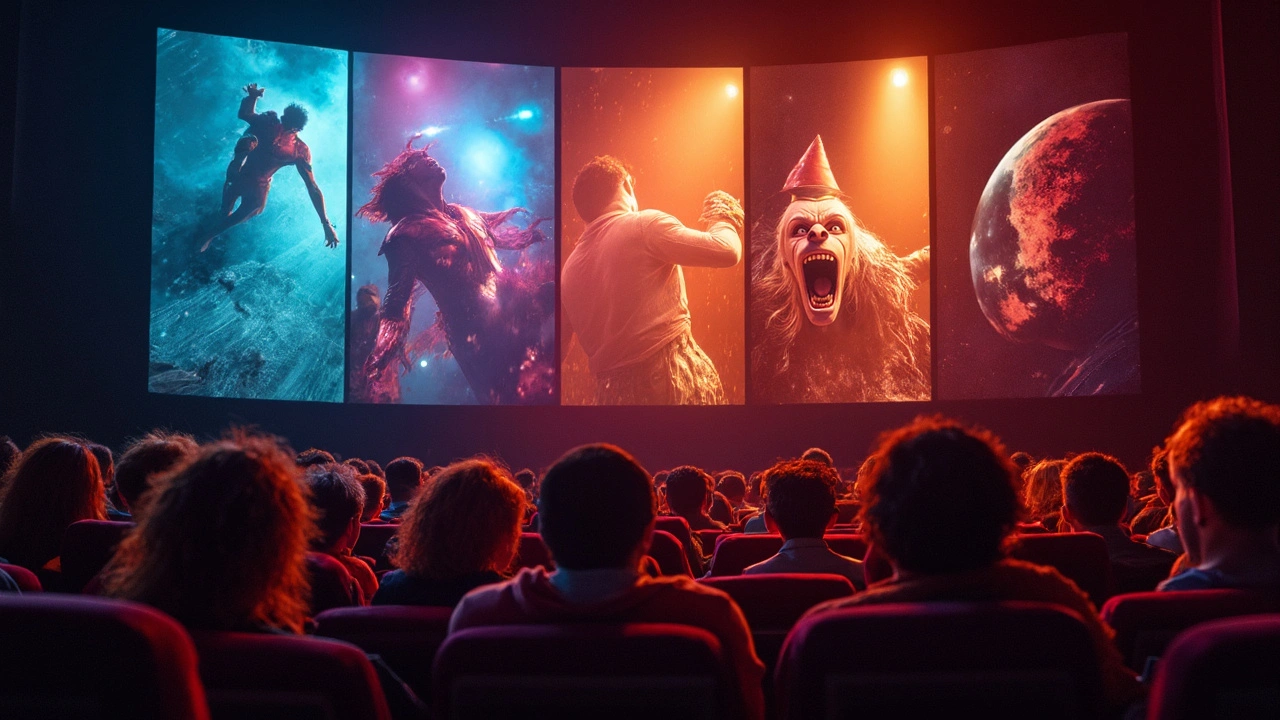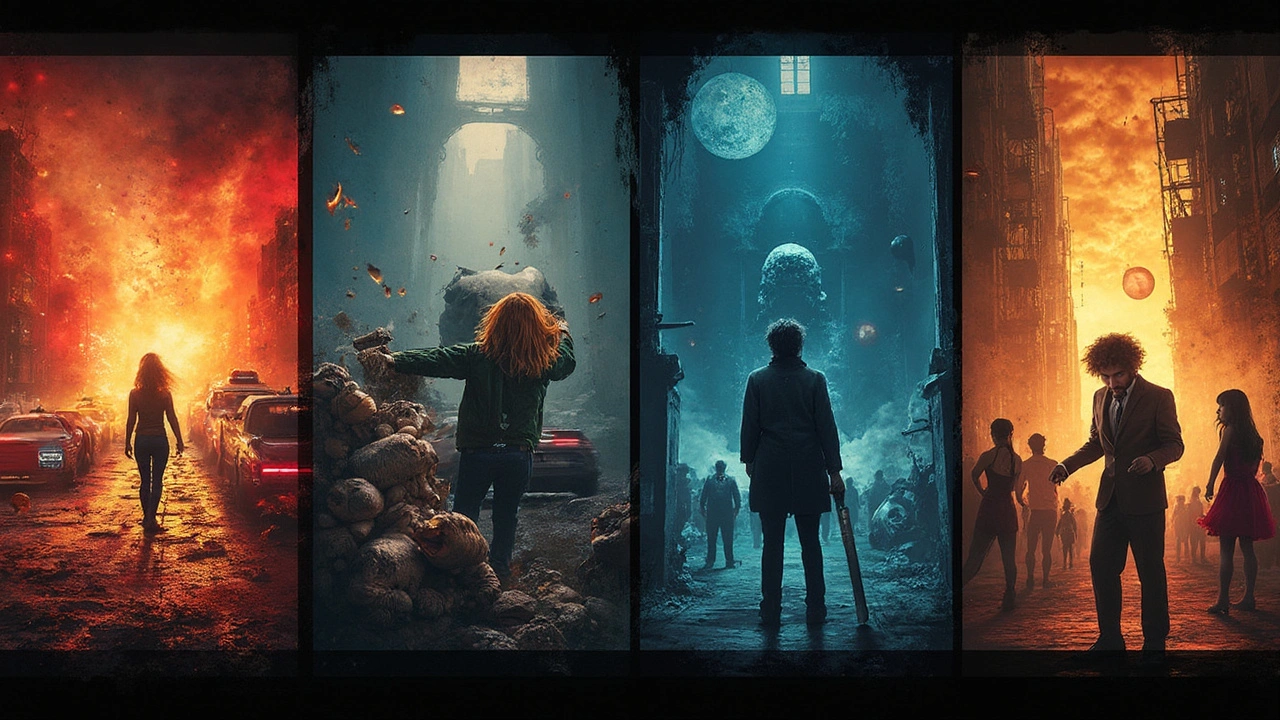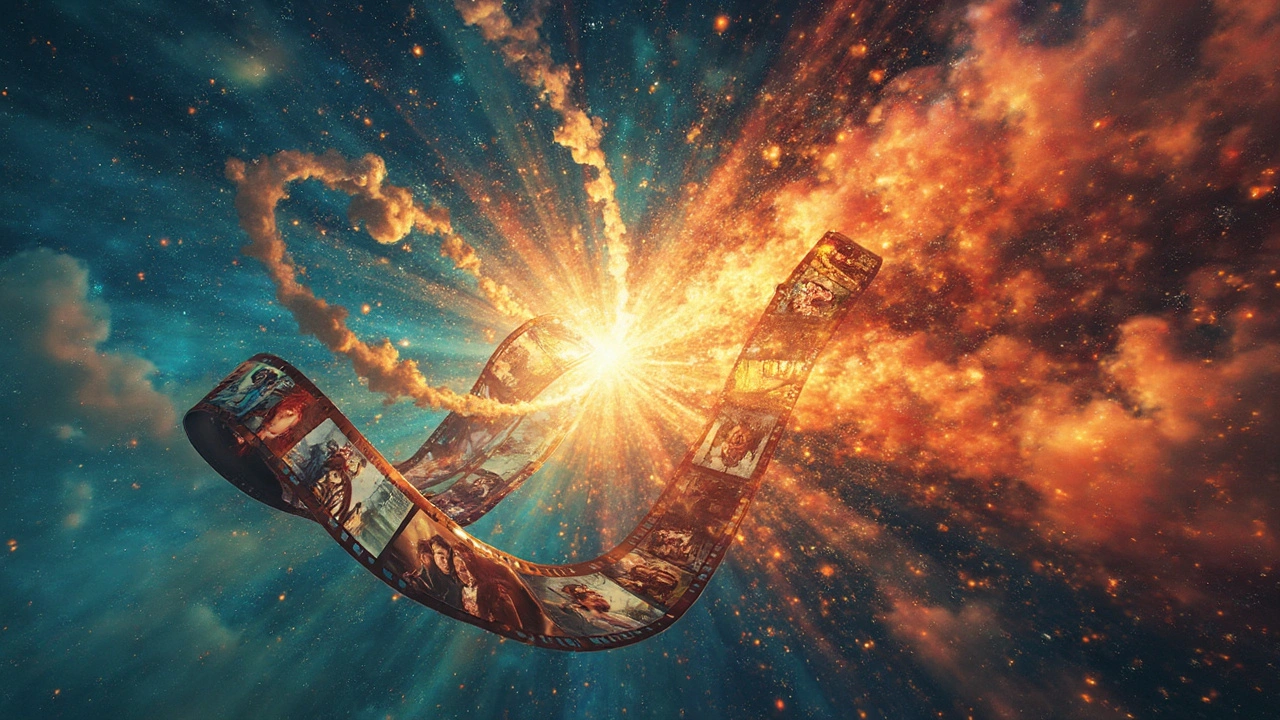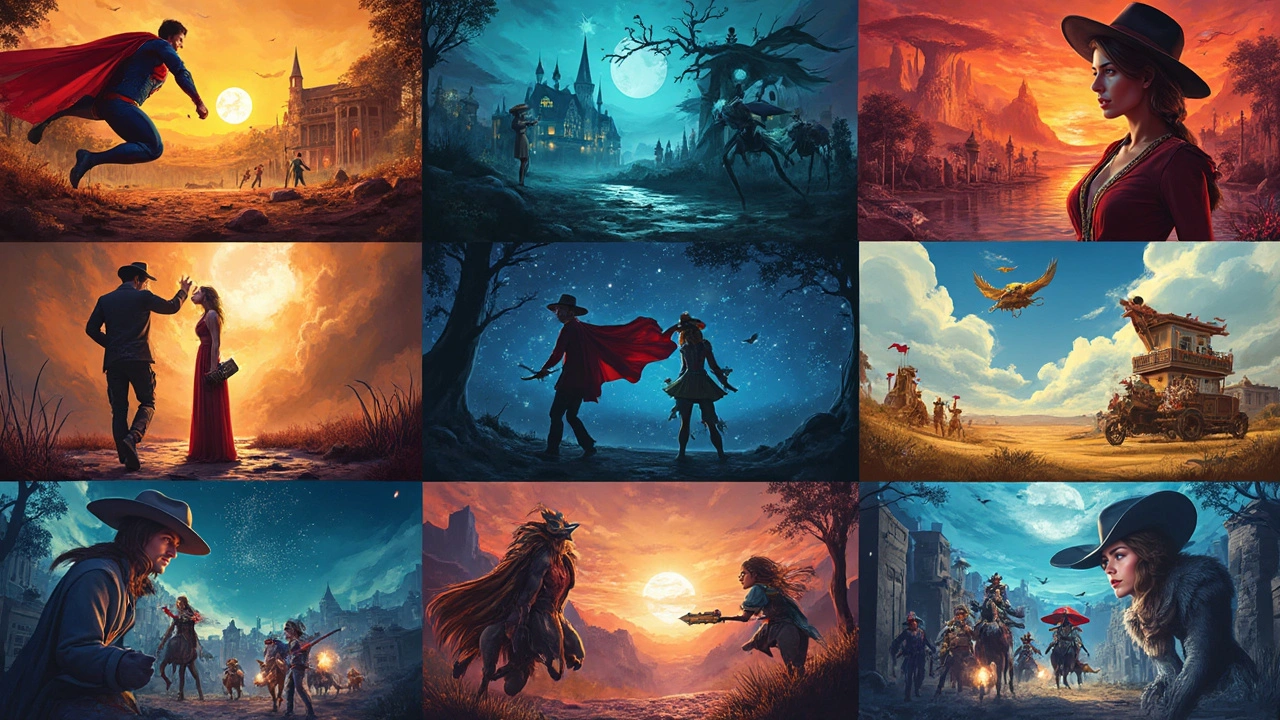When it comes to film, genres help us navigate the endless ocean of movies out there. Whether you're in the mood for a heart-pounding adventure or a gut-busting comedy, understanding the main genres can seriously up your movie night game.
Action movies get your blood pumping with intense sequences and high stakes, leaving you at the edge of your seat. Horror, on the other hand, is all about thrills and chills, playing on our deepest fears with suspenseful storytelling.
If you're looking to lighten the mood, comedy is your best bet. A good laugh goes a long way, and comedies deliver with clever dialogue and hilarious situations. And then there's drama, where emotion drives the story, focusing on characters and realistic plots that hit close to home.
These genres form the foundation of cinema. So next time you're scrolling through streaming options, knowing these basics can point you in the right direction. Let’s dive into each genre and see what makes them tick!
- Action: Adrenaline and Adventure
- Horror: Suspense and Frights
- Comedy: Laughter and Levity
- Drama: Emotion and Storytelling
Action: Adrenaline and Adventure
Action films are the heartbeat of cinema, designed to make pulses race and keep eyes glued to the screen. They're known for explosive sequences, heroics, and relentless pacing that often leaves audiences breathless.
These movies often revolve around a hero overcoming impossible odds, whether it's saving the world from disaster or beating the bad guys against enormous obstacles. Ever wondered why we love them so much? It’s all about that adrenaline rush.
Origins and Evolution
The foundation of the action genre can be traced back to silent films like "The Great Train Robbery" (1903), which dazzled viewers with thrilling chases and gunfights. As technology and techniques evolved, so did action films, giving rise to classics like "Die Hard" and "Mad Max".
Core Elements
What makes an action film tick? Here’s the toolkit:
- High-Stakes Plot: Whether it's a ticking time bomb or a fierce battle, the stakes are always nail-biting.
- Dynamic Characters: Larger-than-life heroes and memorable villains add layers to the spectacle.
- Physical Feats: Expect jaw-dropping stunts and impressive choreography, often involving fights, chases, and explosions.
- Fast-Paced Editing: Quick cuts keep the energy up and the audience engaged.
Film Recommendations
Looking to dive into some action-packed classics? Here are a few must-watch films:
- "Die Hard" - The ultimate Christmas action movie, with Bruce Willis taking on a skyscraper full of terrorists.
- "Mad Max: Fury Road" - A non-stop chase set in a post-apocalyptic desert. Visually stunning and adrenaline-fueled.
- "John Wick" - A slick, stylish hitman saga with Keanu Reeves serving justice in high-octane sequences.
Statistics show that action films continue to be a box office powerhouse. Just in 2022, they accounted for a significant chunk of global ticket sales, proving their universal appeal across ages and regions.
The Future of Action Films
As technology advances, the future of action movies is brighter and louder than ever. From CGI-enhanced explosions to virtual reality experiences, innovation ensures the genre remains fresh and exciting. So, buckle up and get ready for more edge-of-your-seat adventures!
Horror: Suspense and Frights
When it comes to horror, it's all about tapping into the universal human fears. These films are masters at creating suspense and leaving audiences clenching their seats. With a mix of eerie settings, creepy soundtracks, and unexpected twists, horror movies keep viewers on their toes.
Classic Elements of Horror
A good horror film involves several elements: mystery, danger, and the unknown. Often, old horror classics, like Alfred Hitchcock's 'Psycho', play mind games with the audience, using subtle tension rather than explicit scenes to get under your skin.
Modern movies often blend psychological twists with gore, offering a different take on the genre. Films like ‘Get Out’ changed the game by diving into societal issues while keeping the chills coming. It was a hit, grossing over $250 million worldwide and proving horror can be both thought-provoking and terrifying.
Why Do We Love Horror?
Curiosity drives us to explore what scares us the most. Horror films give a safe space to confront these fears. It’s ironic, but we enjoy being scared, as long as it's from the safety of our couch. The adrenaline rush brings excitement and, believe it or not, some studies suggest it might even offer stress relief!
Choosing the Right Horror Film
If you’re new to horror, start with something light on gore, like 'A Quiet Place.' It’s suspenseful but focuses on storytelling and character emotion. For seasoned fans, ‘Hereditary’ offers a mix of psychological and supernatural horror that’s bound to leave a mark.
Ultimately, picking the right film depends on your tolerance for scares and what type of horror narrative intrigues you most.

Comedy: Laughter and Levity
The comedy genre has been tickling our funny bones since the early days of cinema. It's all about creating moments of joy and laughter, whether through clever wordplay, physical gags, or absurd situations. Comedies are like a breath of fresh air, helping us escape the seriousness of everyday life, even if just for an hour or two.
One of the greatest things about comedy is its variety. There's something for everyone, whether you're into slapstick, romantic comedies, or dark humor. Remember Charlie Chaplin's silent films? They set the stage for visual comedy, and his routines continue to inspire filmmakers even today. The genre's versatility allows for a mix with other genres, leading to hilarious sub-genres like horror-comedy or action-comedy.
Making a Comedy Hit
Creating a successful comedy is a delicate balancing act. Timing is crucial—what comedians call the 'right rhythm' between dialogue and action can make or break a joke. Movies like "Superbad" or "The Hangover" work because they nail this timing, keeping audiences in stitches from start to finish.
Storylines in comedies may not always be complex, but they thrive on relatable situations that exaggerate life’s quirks and mishaps. Think of "Bridesmaids," where a bridal party spirals into chaos in the funniest ways. The key is to tap into universal humor—things like relationship struggles, workplace woes, or family dynamics.
The Digital Age of Comedy
The way we consume comedy has also evolved. With streaming platforms, there's access to an endless selection of films and stand-up specials. For aspiring filmmakers, it's a golden opportunity to showcase fresh comedic voices. Movie nights have become an adventure, taking you through different styles and cultures of comedic storytelling.
Fun Fact: Laughter is Contagious!
Did you know laughing burns calories? Not a ton, but it's a fun bonus while watching your favorite funny films. Plus, laughter’s contagiousness is why comedies often become group favorites—there's nothing like sharing a good laugh with others.
In the grand reel of film genres, comedy stands out for its ability to unite us with humor. Whether it's a quirky indie film or a blockbuster hit, comedy remains a beloved staple in cinema, guaranteed to lift your spirits.
Drama: Emotion and Storytelling
Let's talk about one of the most captivating film genres: drama. These movies dive deep into the human experience, exploring emotions, relationships, and life's ups and downs. What makes dramas special is their focus on character development and realistic scenarios that resonate with audiences.
Take a classic like "The Shawshank Redemption." Set in a bleak prison environment, it explores themes of hope and redemption, all while keeping audiences hooked with powerful performances and an engrossing story. Dramas often tackle tough topics, sparking conversations and leaving a lasting impact.
In the world of drama, storytelling is king. The plot intricacies, dialogue, and characterization are key elements. The tension and resolution of conflicts are carefully crafted to engage viewers emotionally. A good drama will have you feeling deeply connected and reflective about the story—even long after the credits roll.
Here's an interesting fact: According to a study by the BFI (British Film Institute), more than 44% of all Best Picture Oscar winners have been dramas. This shows not only the popularity of the genre but also its critical acclaim and influence in the film industry.
Elements of a Good Drama Film
- Emotion-Driven Plot: The plot usually revolves around an emotional or moral issue, keeping viewers fully invested.
- Character Depth: Complex characters with relatable struggles are crucial for a successful drama.
- Realism: Situations and settings that reflect real life help to ground the story.
- Cathartic Resolution: Most dramas aim to evoke a strong emotional release or understanding by the end.
So, next time you watch a drama, pay close attention to how the film's elements work together to create an immersive, emotional experience. Whether it makes you cry or contemplative, a solid drama leaves its mark and enriches your understanding of the world and the people in it.



